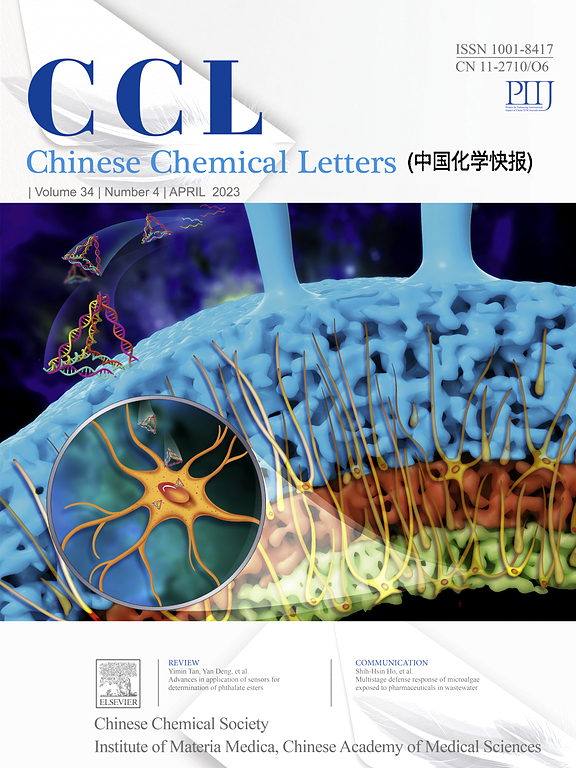Gelation-pyrolysis strategy for fabrication of advanced carbon/sulfur cathodes for lithium-sulfur batteries
IF 9.4
1区 化学
Q1 CHEMISTRY, MULTIDISCIPLINARY
引用次数: 0
Abstract
The development of high-performance carbon-based composite hosts palys decisive roles in the electrochemistry of lithium sulfur batteries. Herein, a novel metal-ion induced gelation self-assembly technology is reported to construct sodium alginate carbon (SAC) based polar hierarchical carbon composites with cross-linked network architecture and in-situ co-grown cross-linked polar nanoparticles. Interestingly, it shows high versatility to an extensive array of materials including metals, alloys, and metallic oxides. As a representative, NiCo alloy nanoparticles are chosen to obtain the SAC/NiCo composite host for sulfur in LSBs, which possess superior physical/chemical adsorption capabilities and catalytic conversion kinetics to polysulfide in virtue of synergistic interaction between the hierarchical pore structures and NiCo catalyst. The designed SAC/NiCo-S cathode shows superior electrochemical performance with excellent rate capacity (2 C: 693.5 mAh/g) and enhanced cycling stability (764.3 mAh/g at 0.1 C after 240 cycles). This work provides a straightforward approach for fabricating multifunctional carbon composites with adjustable component for advanced energy storage system.

制备锂硫电池先进碳/硫阴极的凝胶-热解策略
高性能碳基复合材料基体的研制对锂硫电池的电化学性能起着决定性的作用。本文报道了一种新型金属离子诱导凝胶自组装技术,构建了具有交联网络结构的海藻酸钠碳(SAC)极性分层碳复合材料和原位共生长交联极性纳米颗粒。有趣的是,它对包括金属、合金和金属氧化物在内的广泛材料显示出高度的通用性。以NiCo合金纳米颗粒为代表,获得了SAC/NiCo复合硫载体,该载体通过分级孔结构与NiCo催化剂之间的协同作用,具有优越的物理/化学吸附能力和催化转化多硫的动力学。所设计的SAC/NiCo-S阴极具有优异的电化学性能,具有良好的倍率容量(2℃:693.5 mAh/g)和增强的循环稳定性(0.1℃,240次循环后764.3 mAh/g)。本研究为先进储能系统中可调组分多功能碳复合材料的制备提供了一种简单的方法。
本文章由计算机程序翻译,如有差异,请以英文原文为准。
求助全文
约1分钟内获得全文
求助全文
来源期刊

Chinese Chemical Letters
化学-化学综合
CiteScore
14.10
自引率
15.40%
发文量
8969
审稿时长
1.6 months
期刊介绍:
Chinese Chemical Letters (CCL) (ISSN 1001-8417) was founded in July 1990. The journal publishes preliminary accounts in the whole field of chemistry, including inorganic chemistry, organic chemistry, analytical chemistry, physical chemistry, polymer chemistry, applied chemistry, etc.Chinese Chemical Letters does not accept articles previously published or scheduled to be published. To verify originality, your article may be checked by the originality detection service CrossCheck.
 求助内容:
求助内容: 应助结果提醒方式:
应助结果提醒方式:


